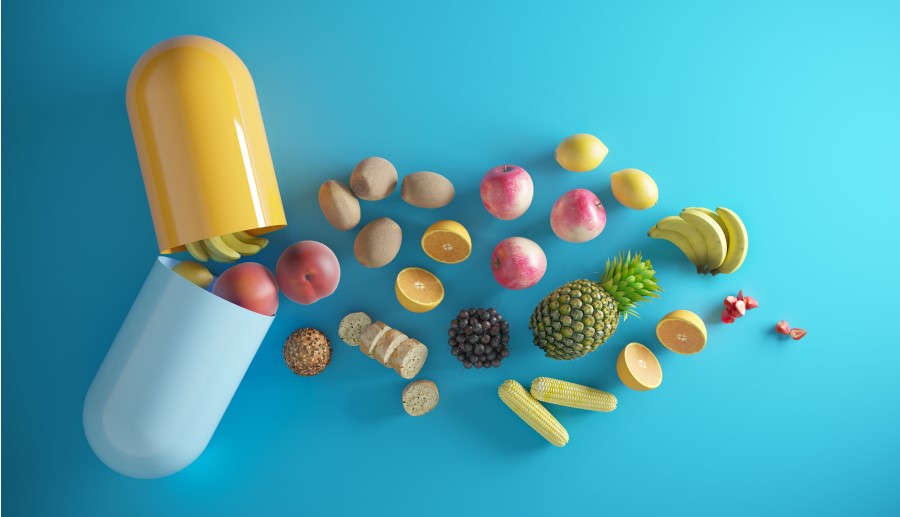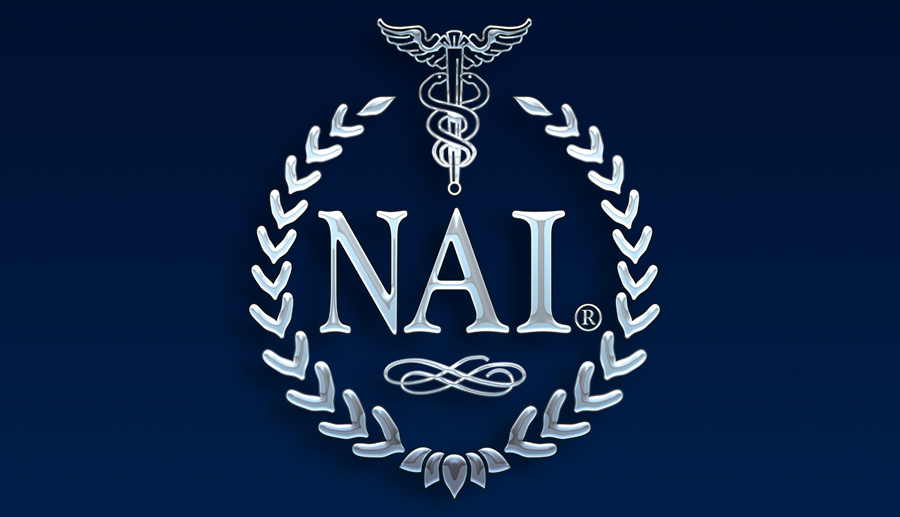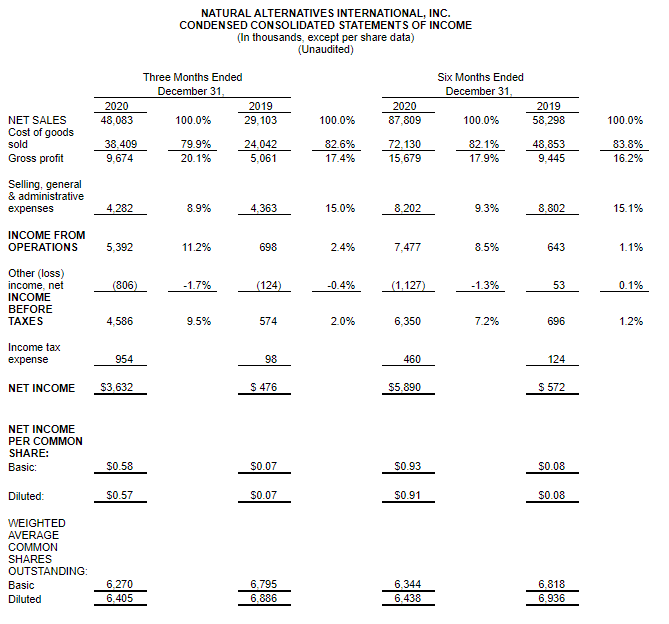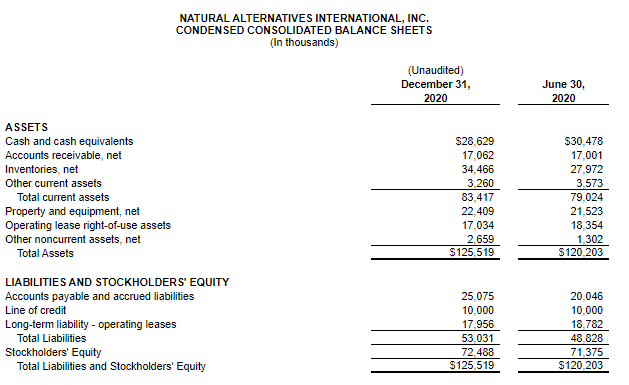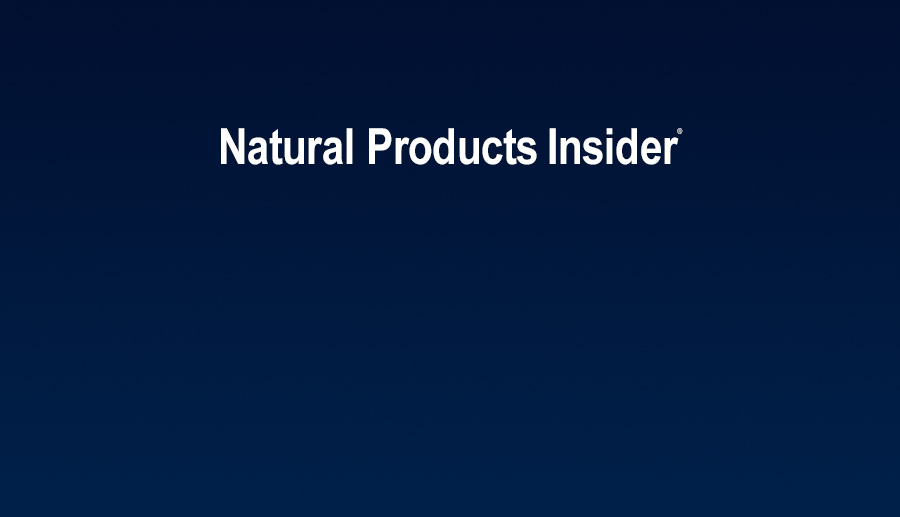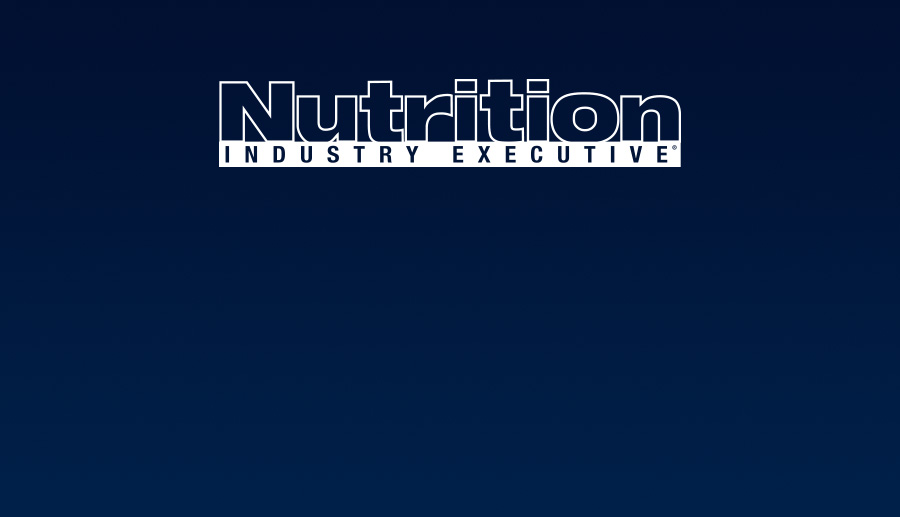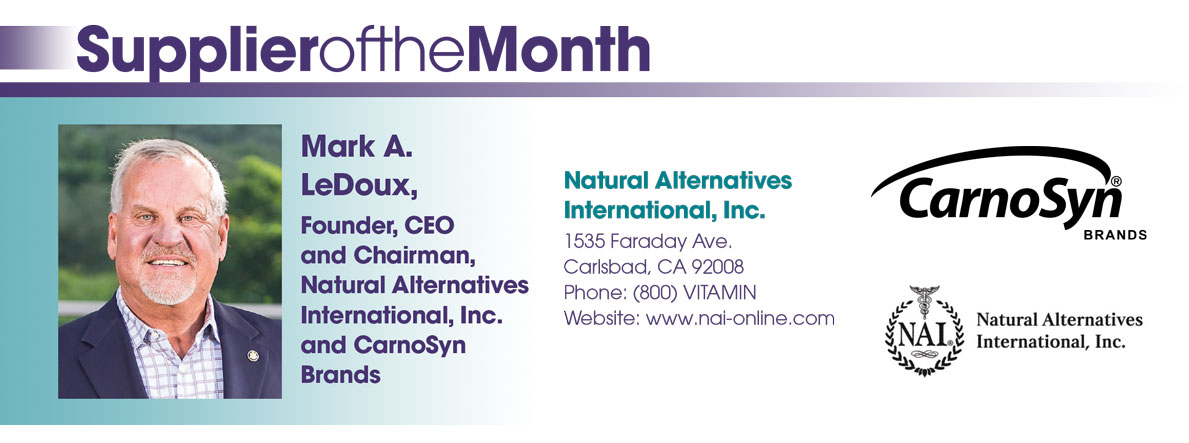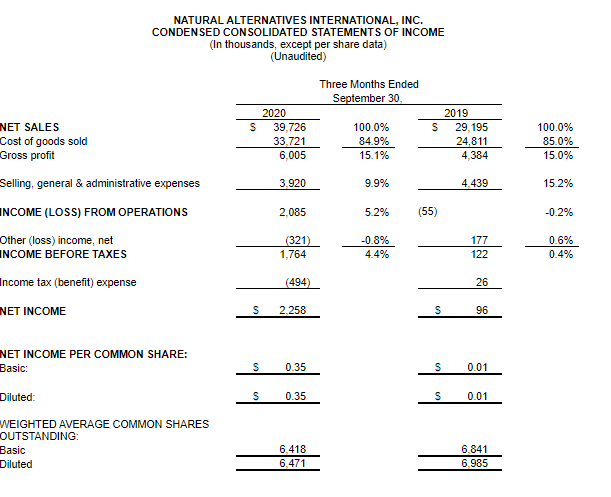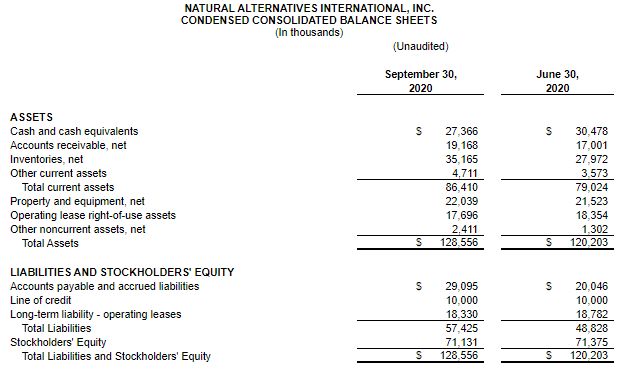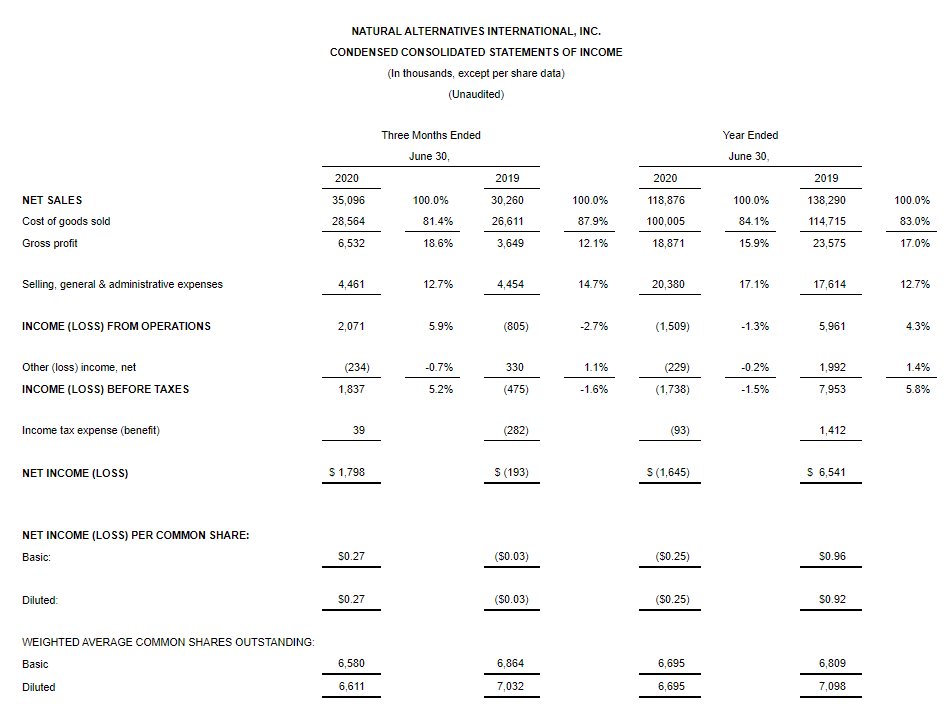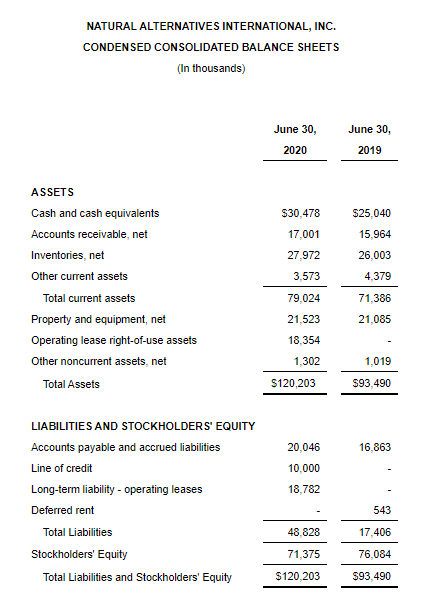PA manufacturer of nutritional supplements has come up short in its request for FDA to issue an import alert for beta-alanine produced in China.
Josh Long | Aug 03, 2020
Editor’s note: This is part three of a four-part series of articles on FDA enforcement of the new dietary ingredient notification requirement in U.S. law.
About five months ago, attorney Kevin Bell made a written request to FDA on behalf of his client, Natural Alternatives International Inc. (NAI), a manufacturer of nutritional supplements: Issue an import alert for beta-alanine ingredients produced in China, whose identity and safety data has not been reviewed by FDA’s Office of Dietary Supplement Programs (ODSP).
NAI, of Carlsbad, California, also supplies beta-alanine to its customers. It’s manufactured in Japan and was the subject of a 75-day, premarket new dietary ingredient notification (NDIN) to FDA, based on a safety-related requirement in the Dietary Supplement Health and Education Act of 1994 (DSHEA).
In a Feb. 24 letter, Bell advised an FDA official that several different methods are being used in China to produce beta-alanine, including the use of GMOs to synthesize the ingredient.
“As FDA is well aware, a manufacturing process that utilizes GMOs may cause or increase potential risks for creating contaminants and/or impurities—or worse,” Bell wrote in the eight-page letter to Steven Tave, director of ODSP. “Refusal by manufacturers to provide this information to FDA as required in a NDIN is indicative of a potential health risk.”
NAI’s lawyer requested the agency “issue an import alert to stop adulterated generic forms of beta-alanine from entering the U.S.” An import alert would demonstrate FDA takes “seriously” the NDIN requirement, which would change the “risk profile” of companies in the supplement sector, according to Bell, a partner in Washington, D.C., with Arnall Golden Gregory LLP (AGG).
Robert Durkin is a former FDA official who now practices law at AGG in the nation’s capital. He said in an interview with Bell that an import alert would require making a charge that the ingredient—in this case, beta-alanine—appears to violate the law based on a “technical adulteration” for failure to provide FDA an NDIN.
“It’s a much easier burden on the agency to make a technical adulteration charge than it is to make an actual adulteration charge based on safety and risk,” said Durkin, who worked as deputy director of ODSP under Tave before leaving the agency in October 2019. Beginning in April 2015, Durkin also served as acting director of FDA’s Division of Dietary Supplement Programs—and later the Office of Dietary Supplement Programs—before Tave came on board.
A technical adulteration charge is “just paperwork,” Durkin added. “There’s no science involved.”
Section 801 of the Federal Food, Drug and Cosmetic Act (FD&C or Act) “explicitly authorizes FDA to refuse admission of articles that appear to violate the Act,” according to an FDA regulatory procedures manual. “Detention without physical examination,” the manual states, “properly places the responsibility for ensuring compliance with the law on the importer.”
Commenting on import alerts through a spokesperson, FDA said a firm may be subject to “detention without physical examination” for various reasons, such as if the agency identified a microbiological pathogen in a product, a product contains pesticides that are not permitted or exceed tolerance levels, a firm refused to allow FDA to conduct a foreign inspection, or a product is an unapproved new drug.
FDA confirmed that over a recent 19-month period, it had not issued a new import alert for an imported product for which it did not receive an NDIN.
Marc Ullman, a lawyer in New York who started an FDA practice in 1999, agrees FDA should use an import alert to target novel dietary ingredients that have not gone through the NDIN process.
“FDA’s powers at the border are at their greatest,” Ullman, of counsel with Rivkin Radler LLP, said in an interview. The agency only must demonstrate “the product appears to violate the Act.” He suggested FDA could detain beta-alanine ingredients for which there is no NDIN on file with FDA.
The process, Ullman concluded, is not “resource-intensive. You don’t have to leave your desk.”
An import alert requires a significant amount of analysis and FDA clearance, responded Tave, the agency’s dietary supplements chief. Others involved, for example, include the Office of Compliance with the Center for Food Safety and Applied Nutrition (CFSAN), import authorities within the Office of Regulatory Affairs and Office of Chief Counsel.
“Like everything else at FDA, it’s not like firing off a Tweet or a press release,” he said in an interview. “That’s not to say it’s not a useful tool. It’s just to say that it’s not like flipping a switch.”
If FDA detained a “copycat of an NDI” through an import alert, a manufacturer could get back its property by establishing its product doesn’t violate the FD&C, Durkin said. Before products enter the market, he explained, manufacturers “should have a basis for knowing that their ingredient doesn’t violate the Act and that their ingredient is reasonably expected to be safe.”
FDA issued an import alert on kratom, a botanical from Southeast Asia that FDA considers an NDI, when the leader of the Natural Products Association (NPA), Dan Fabricant, directed FDA’s then-Division of Dietary Supplement Programs.
Two import alerts currently apply to kratom, including one issued in 2019 (Import Alert 54-15) that remains in effect. Based on the agency’s “review of the publicly available information regarding kratom, there does not appear to be a history of use or other evidence of safety establishing that kratom will reasonably be expected to be safe as a dietary ingredient,” FDA stated in Import Alert 54-15.
In advocating for an import alert, Fabricant said his division approached other parts of FDA, including the Office of Compliance and Office of Chief Counsel, explaining justification for the requested action. Unlike a request for an injunction, an import alert does not require involvement from the U.S. Department of Justice (DOJ) and its attorneys, stated Fabricant, who led FDA’s supplement division from 2011 to 2014. (Late in 2015, the Division of Dietary Supplement Programs was elevated to an Office).
Is an import alert “the hardest thing the agency does?” asked Fabricant. “Hell no.”
Durkin distinguished kratom from “counterfeit” NDIs that haven’t been reviewed by FDA. While FDA possessed “information that showed kratom was dangerous,” the agency lacks the documentation to demonstrate “these counterfeit ingredients are safe,” he said.
An import alert on a copycat NDI, Durkin stated, “would have an exponential impact through the supply chain. If you stop it at the border, think of all the possible harm you’re preventing right there.”
In enforcing against products under its jurisdiction that appear to violate the Federal Food, Drug & Cosmetic Act, FDA has been known to use import alerts.
Tave distinguished kratom from beta-alanine, the subject of an NDIN that FDA acknowledged without objection. By contrast, FDA has never acknowledged an NDIN for kratom, he said.
“In 25 years, as far as I know, there has never been an import alert under the theory that since one ingredient received an acknowledgement without objection for a notification, everybody else is adulterated,” Tave explained. “This would be unprecedented. It’s not that it hasn’t happened in six years … it has never happened before.”
Fabricant countered that when he worked at FDA, his division brought cases that were unprecedented, including when FDA exercised its mandatory recall authority, pressuring USPlabs—a now-defunct dietary supplement manufacturer prosecuted by DOJ—to voluntarily recall supplements containing aegeline.
Durkin described his former employer as “extremely risk-averse when it considers taking new regulatory pathways.”
As an “institution” and as “individuals,” FDA is “afraid to lose a fight,” he said in a recent interview. “Perfect has become the enemy of good.”
“IN 25 YEARS, AS FAR AS I KNOW, THERE HAS NEVER BEEN AN IMPORT ALERT UNDER THE THEORY THAT SINCE ONE INGREDIENT RECEIVED AN ACKNOWLEDGEMENT WITHOUT OBJECTION FOR A NOTIFICATION, EVERYBODY ELSE IS ADULTERATED.”– Steven Tave, director, FDA Office of Dietary Supplement Programs
L-tryptophan crisis
Durkin questioned what other rules companies are breaking if they fail to notify FDA before marketing an NDI and don’t have a legal basis for putting their ingredient into commerce. Are they violating cGMPs (current good manufacturing practices)—FDA regulations intended to ensure supplements are made to quality standards, contain what’s declared on the label and are free of contaminants?
The intent of the FD&C is to “protect people up front, not just react” when consumers are harmed, said Bell, who argued he presented a compelling case to FDA of potential harm from an NDI. While NAI provided FDA evidence of safety at certain levels for its ingredient, that doesn’t mean other manufacturers can rely on that evidence because it’s unknown how they are producing the ingredient and what bacteria strains they’re using, he added.
Tave agreed the NDIN requirement is intended to prevent harm, but he stated his agency must “establish every element of a violation” per DSHEA. Tave acknowledged Bell’s letter to him shows firms besides NAI are importing beta-alanine into the U.S., and he conceded the ingredient is being sold in the U.S. However, he added, “The letter does not make a case that any specific firm is doing so unlawfully.”
Bell and another attorney pointed to the L-tryptophan crisis in 1989 to highlight the potential harm to consumers if an ingredient undergoes a change in a manufacturing process. U.S. authorities traced an illness known as eosinophilia-myalgia syndrome (EMS) to contaminated L-tryptophan, an amino acid sold as a supplement.
The Japanese manufacturer likely responsible for the illnesses, Showa Denko K.K., produced its ingredient “through a fermentation process involving Bacillus amyloiquefaciens,” according to a 1994 article published in the Cornell Journal of Law and Public Policy. “In December 1988, Showa Denko began to use a new, genetically-altered strain of Bacillus amyloiquefaciens called Strain V, and in 1989, reduced the amount of activated carbon in the purification process by one-half. Between October 1988 and June 1989, some batches bypassed a filter which removed heavier chemicals. These potentially contaminated batches went through the purification process with other batches.”
In certain epidemiological studies, FDA said in a 2001 paper, the vast majority of EMS cases (more than 95%) were traced to L-tryptophan supplied by Showa Denko. The agency, however, suggested “L-tryptophan-associated EMS was caused by several factors and is not necessarily related to a impurity in a single source of L-tryptophan.”
In his letter to Tave, Bell cited the L-tryptophan calamity to highlight the potential harm to consumers if ingredient suppliers do not disclose their manufacturing processes to FDA in an NDIN.
“It was later shown that changes to the manufacturing protocols made by this firm resulted in the production of many impurities that were not found in L-tryptophan manufactured using previously established protocols,” Bell wrote to Tave, in his request for the agency to issue an import alert. “One of these contaminants, a dimer of amino acid L-tryptophan, was strongly related to the outbreak of EMS. NAI knows that similar, but slightly different, means of production for beta-alanine can result in the presence of both characterized and uncharacterized contaminants.”
‘Connect those dots’
In response to questions for this article, FDA through a spokesperson said Bell neither specified the harmful manufacturing methods for beta-alanine nor identified the companies using them.
“And even though the Bell letter names a number of entities manufacturing and exporting beta-alanine from China to the United States, it does not offer any evidence to indicate where those ingredients are going—including whether they are destined for processing into dietary supplements over which FDA has jurisdiction,” the agency wrote in an email.
Per the law, the burden of proof falls on FDA to establish a dietary supplement is adulterated, the agency added. “I can’t bring charges against a product for violating the dietary supplement rules if there’s no evidence that the product is being used in a dietary supplement,” Tave explained in the first of two phone interviews.
Steven Tave oversees FDA’s Office of Dietary Supplement Programs. A long-time FDA official, he was named ODSP’s first permanent director in November 2016 after serving as acting director beginning in March 2016.
Addressing the level of detail FDA is seeking from an outside party that could support an enforcement action, Tave likened the process to writing a brief to a court in which the judge in her order essentially adopts verbatim the petitioning lawyer’s motion. He practiced law as a litigator in FDA’s Office of Chief Counsel and in the private sector.
“Give me all of the pieces of evidence,” Tave said. “Connect those dots to show why these products are in violation and why that supports the use of the agency’s resources as a public health matter, where we need to prioritize to do something right now.”
Bell and Fabricant asserted they provided FDA volumes of records over a period of more than a year—many of which are referenced in a previous article—and offered to share additional information.
Until a reporter shared FDA’s comments for this story, Bell said he was unaware of its position that he had not provided the agency adequate information. “While FDA has more than enough data to meaningfully pursue NDI enforcement, we were consistently instructed not to inundate Director Tave with too much, but rather to ‘spoon feed’ him with limited amounts of information to avoid overwhelming ODSP and delaying any enforcement efforts,” he explained by email.
“Anything that was pared down was pared down at the request of FDA,” Bell added in one of several interviews. “That wasn’t our decision.”
Among the information Bell said was provided to FDA:
- The identity of Chinese manufacturers of beta-alanine over several years, including their addresses, import records of individual shipments and the recipients of shipments in the U.S.;
- The names of U.S. ingredient suppliers, contract manufacturers and companies selling finished brands that incorporated generic beta-alanine into their supplements.
“These documents and information were provided in face-to-face meetings, telephone calls and numerous correspondence,” Bell stated. “In meetings at FDA with Director Tave and other senior FDA officials, we described specific forms of manufacturing methods that included the use of unidentified bacterial strains being used at many Chinese facilities. These strains included E.coli and fermentation methods that FDA had no insight into. The very concept that the agency would not pursue enforcement of the FD&C because they didn’t have every piece of information in advance is not true.”
NAI, Bell added, doesn’t have the authority to conduct a foreign inspection of a firm to demand disclosure of its production process, such as use of GMOs. “That is FDA’s job,” he said. “Our job was to ‘lead the horse to water.’”
In a recent interview, Tave said no one at FDA “instructed” NAI’s advocates to do anything. While he acknowledged FDA was given “mountains and mountains of information,” he suggested the information could not help achieve “the result that they are demanding” because it did not show violations of the law.
“They know we have limited resources,” he said. “We can’t just spend all of our time combing through information, looking for a violation when the firm that’s complaining hasn’t taken the time to do that.”
He described the records given to FDA as “a document dump.”
“Here are piles and piles of spreadsheets, bills of lading—things that we don’t have the expertise to review—things that were not connected to a violation,” Tave said. “We met with them multiple times whenever they asked to meet. We reviewed what they sent whenever they asked us to review something, but we don’t have the capacity to do their job.”
He added, “We work with industry and we will always work with industry. We do not work for industry.”
‘Second comer’ ingredients
In an interview, attorney Scott Bass explained why, in his opinion, a “second comer” or “follow-on product” to an NDIN must also notify FDA. “The law requires all follow-on manufacturers to file as well, and … the single reason is L-tryptophan,” said Bass, a partner with Sidley Austin LLP, who heads the firm’s Global Life Sciences team. “There can be two companies making the same ingredient, and one cheats on filtration. One uses a different chemical for extraction.”
How can FDA know whether the second-comer is “using cheaper processes and manufacturing” in violation of cGMPs, Bass asked? “You don’t unless you file an NDIN saying, ‘Here’s our basis for safety.’”
While a copycat compound may claim to be the same dietary ingredient as one successfully acknowledged by FDA, “have you shown it’s the same?” Fabricant asked.
Frank Jaksch Jr. is co-founder and executive chairman of the board of directors of ChromaDex Corp., a nutraceutical company that on two separate occasions successfully navigated the NDIN process for Niagen, also known as nicotinamide riboside (NR)—a member of the vitamin B family promoted to boost nicotinamide adenine dinucleotide (NAD+). He agreed a “piggyback compound” poses many unanswered questions about the production of an ingredient, such as whether the two ingredients have different impurities.
“If something is not chemically identical, then all bets are off,” he said in an interview.
Sibyl Swift, a former FDA official, concurred with that assessment. NPA announced in January that Swift joined the trade group as senior vice president of scientific and regulatory affairs.
“Unless you’re following the exact same process with the exact same chemicals, reagents, then it’s something different and it was manufactured differently,” said Swift, whose last job at FDA was associate director for research and strategy within ODSP. “And you should come in and notify [FDA] for it—even if the end product looks the same.”
Section 413(a)(1)—NDIN exemption
That doesn’t mean FDA assumes NDIs in commerce that it hasn’t reviewed are all adulterated. In its emailed response to questions, FDA cited a “novel misconception” in recent years that an acknowledged NDIN “entitles the notifier to market exclusivity via on-demand enforcement against potential competitors.” The agency referenced Bell’s letter, in which the lawyer concluded “NAI or its authorized agents are the only entities allowed to import and distribute beta-alanine without violating the FD&C Act.”
“The law doesn’t support the argument that having an acknowledged NDI notification is the only way to lawfully market a dietary supplement,” Tave explained.
FDA, for example, cited Section 413(a)(1) of DSHEA. That section exempts an NDI from a premarket notification to FDA if the “supplement contains only dietary ingredients which have been present in the food supply as an article used for food in a form in which the food has not been chemically altered.”
Dietary ingredients marketed before Oct. 15, 1994 in the U.S. are not considered “new” and also are exempt from the notification requirement.
The NDIN “requirement exists except for where it doesn’t,” Tave said in a second interview. “It doesn’t say, ‘Everybody must submit an NDI notification unless.’ It says first that if you’re an article present in the food supply, that satisfies Section 413.”
And if FDA is going to move against a firm for violating the obligation in the law to file an NDIN, the agency must show the product is “in commerce unlawfully because it’s subject to the requirement,” Tave added. “And how can we show that it’s subject to the requirement if we don’t know if it’s exempt or not?”
‘FDA has resource’ to make inquiries
Addressing FDA’s comments about “market exclusivity,” Bell questioned how there could “be any misconception, novel or otherwise, centered around ‘on-demand’ enforcement when there has been no enforcement.”
“What should a notifier with an AKL [acknowledgement] letter like NAI expect from FDA after investing millions of dollars to submit a quality NDIN and then trying to assist FDA in identifying the companies that knowingly choose to ignore the” FD&C, he asked. “Can they expect anything from FDA?”
Clearly, FDA is free to make inquiries to U.S. marketers of beta-alanine and Chinese exporters of the ingredient. If FDA believes an ingredient is an NDI, “it’s perfectly appropriate” for the agency to fire off a letter to companies marketing that ingredient, Steve Mister, president and CEO of the Council for Responsible Nutrition (CRN), said, commenting generally on NDIs and not beta-alanine specifically.
The agency could ask questions, such as whether the ingredient was marketed before 1994, whether it’s in the food supply and not chemically altered, and whether the company has submitted an NDIN to FDA or done a GRAS (generally recognized as safe) self-affirmation, he added in an interview.
“At some point, my part of helping [FDA] had to have a natural stopping point,” and FDA needed to start its investigation, Bell said.
John Venardos is a global regulatory and government affairs consultant, who previously held high-level positions with Bodybuilding.com and Herbalife. Asked about the NAI case, he said FDA has an obligation “in this situation and in similar situations to make a determination” through cGMP inspections, for example, whether an ingredient is violative of the law or identical to a previously acknowledged NDI.
“To simply say they don’t have enough information is not adequate,” he said in an interview. “FDA has resource—both domestically and internationally, and through the customs authorities, to conduct inquiries.”
While Tave acknowledged FDA could write letters letter to exporters of beta-alanine, he didn’t disclose whether the agency has done so.
“There’s no requirement that a company answer a non-statutory demand from the agency,” he said. “If we have sent letters like this, and received responses or not, we wouldn’t be able to discuss those because we only discuss the compliance status of a firm with that firm.”
Editor’s note: Click here to read parts 1 and 2 of this series. Got feedback for the author? Email [email protected].
GRAS self-affirmation poses challenges to NDI enforcement
by Josh Long
FDA suggested the prevalence of a regulatory pathway known as GRAS (generally recognized as safe) self-affirmation complicates its efforts to enforce compliance with a new dietary ingredient notification (NDIN) requirement in the Dietary Supplement Health and Education Act of 1994 (DSHEA).
Manufacturers of conventional food have an option to inform FDA of their determination that an ingredient is GRAS, which provides the agency an opportunity to review the materials and raise issues that question the firm’s conclusion. On the other hand, the GRAS self-affirmation process does not involve agency review.
Marianna Naum, an FDA spokeswoman, said, “[T]he use of a dietary ingredient in a dietary supplement is not eligible for GRAS.” In reality, though, manufacturers may add an ingredient to conventional food through GRAS self-affirmation, then incorporate the substance into a dietary supplement without notifying FDA.
By following the regulatory pathway above, a supplement manufacturer may conclude a new dietary ingredient (NDI) is not only safe but exempt from a notification requirement in DSHEA. The exemption in Section 413(a)(1) of DSHEA covers NDIs that “have been present in the food supply as an article used for food in a form in which the food has not been chemically altered.”
During a 2017 public meeting hosted by FDA, the leader of the United Natural Products Alliance (UNPA), Loren Israelsen, estimated the ratio of GRAS affirmations to NDINs at 6 or 7 to 1, following the passage of DSHEA.
FDA’s Office of Dietary Supplement Programs (ODSP) has received approximately 1,140 NDINs since the program’s inception, according to Lindsay Haake, an agency spokeswoman, in a July 9 email. The notification requirement is intended to give FDA the opportunity to review the identity and safety of an NDI.
A proposal from Washington, D.C.-based attorney Scott Bass and physician Pieter Cohen of Harvard Medical School would largely gut the exemption in Section 413(a)(1)—what the authors described as a “loophole” that has “swallowed the law.” Manufacturers of supplements have used the exemption “to justify not submitting safety data to the FDA,” according to Cohen and Bass, a partner with Sidley Austin LLP, who helped negotiate DSHEA.
DSHEA “was written with the expectation that this exemption would be used infrequently, but its language is not sufficiently clear,” the two men wrote in a paper published in December 2019 in the New England Journal of Medicine. “The exemption was not meant to apply to new chemicals, combinations or synthetic compounds. Nonetheless, the FDA has appeared to condone the use of this loophole to permit countless substances to be introduced in the absence of submitted safety data.”
NAI GRAS affirmation
Firms reliant on GRAS self-affirmation don’t have to “notify FDA that they are doing so or share the basis for their conclusion,” FDA noted in an email to Natural Products Insider. But some manufacturers that go through the process publicize the information. For instance, on April 11, 2017, Natural Alternatives International Inc. (NAI), a manufacturer of nutritional supplements, announced receiving GRAS affirmation regarding its SR CarnoSyn beta-alanine.
On its website, NAI described the ingredient as “an advanced delivery form of CarnoSyn, which delivers higher dosing levels of beta-alanine, and is proven to provide benefits for both wellness and healthy aging.” The company said the GRAS affirmation would allow it to broaden its “product offerings beyond the sports nutrition space and focus on the food and beverage industries, including medical and other fortified food products.”
The announcement was made more than 18 months before NAI submitted its NDIN (Nov. 20, 2018) for CarnoSyn beta-alanine, which is distinguisable from SR CarnoSyn beta-alanine.
NAI used the GRAS self-affirmation process for SR CarnoSyn beta-alanine, confirmed Kevin Bell, outside counsel to NAI and a partner with Arnall Golden Gregory LLP (AGG) in Washington, D.C. Naum, the FDA spokeswoman, verified the agency had no records of a GRAS submission for beta-alanine in its database.
In a letter to Steven Tave, director of ODSP, Bell requested FDA issue an import alert, detaining beta-alanine manufactured in China that hasn’t been subject to an NDIN. But FDA suggested some manufacturers of beta-alanine may have established the safety of their ingredient through a GRAS self-affirmation—as NAI did with SR CarnoSyn beta-alanine.
“But notably, unlike with the NDI notification requirement, there is no requirement that firms relying on this exception notify FDA that they are doing so or share the basis for their conclusion,” the agency stated via email. “There is also no requirement that they notify FDA that these ingredients are marketed as foods. Therefore, in the absence of a product listing requirement for dietary supplements, there is no systematic way for FDA to know when products relying on this exception are introduced to the market in order to even inquire as to whether they have satisfied the requirements for marketing.”
If beta-alanine is being used in “dietary supplements, it could be under self-GRAS,” Tave said in an interview. “It might not. We don’t know.”
Attorneys, consultant and firms “view GRAS as an alternative to the NDI notification,” he added. “We can’t just assume that products out there are unlawful.” |
Source: Natural Products Insider
